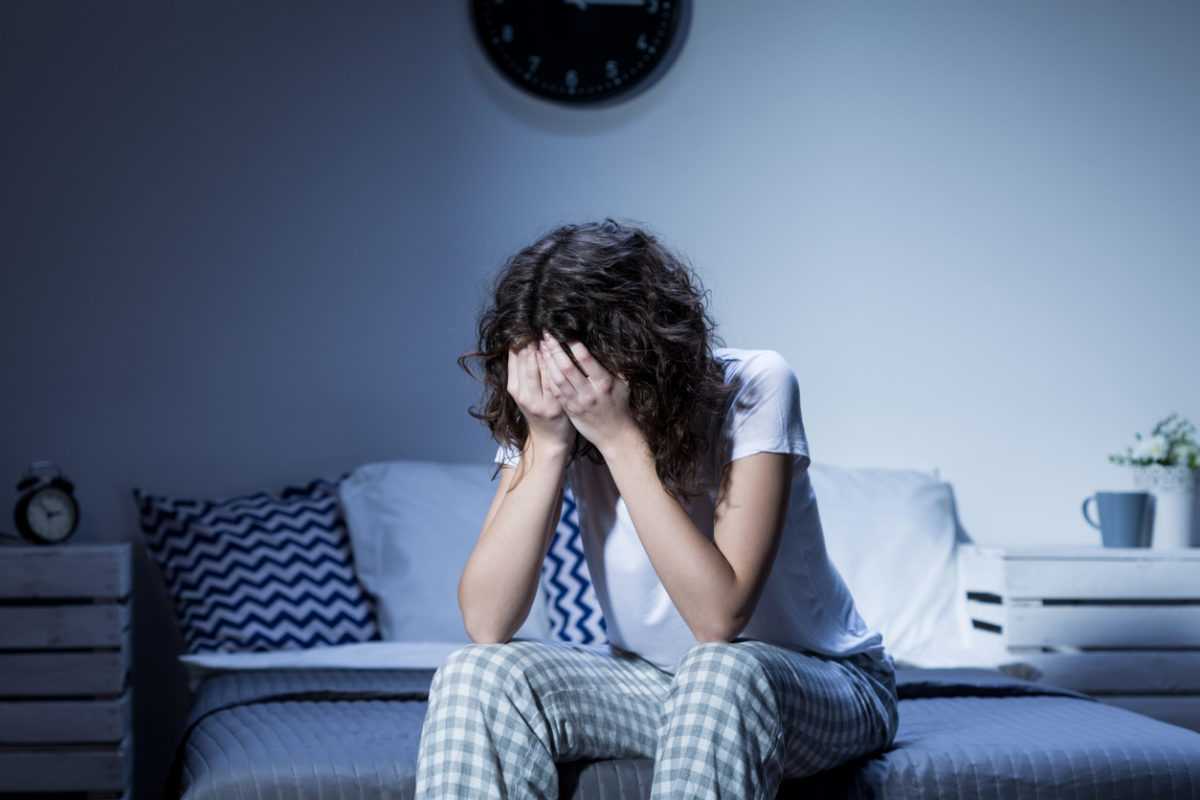The Depression and Insomnia Connection
Sleep disturbances and depression tend to go hand in hand. Troubled sleep is considered a hallmark of the mood disorder. At least 80% of depressed people experience insomnia, that is a difficulty falling asleep or, most often, staying asleep. Early morning awakening is another symptom of depression. About 15% of the depressed sleep excessively
 It may be that insomnia is more than just a symptom of depression. It may in fact unleash the mood disorder. If sleep researcher Michael Perlis, Ph.D., is correct, insomnia may be an early warning sign of depression. His studies show that it appears to precede episodes of depression by about five weeks. Perlis is an associate professor of psychiatry and psychology at the University of Rochester and director of the behavioral sleep medicine service.
It may be that insomnia is more than just a symptom of depression. It may in fact unleash the mood disorder. If sleep researcher Michael Perlis, Ph.D., is correct, insomnia may be an early warning sign of depression. His studies show that it appears to precede episodes of depression by about five weeks. Perlis is an associate professor of psychiatry and psychology at the University of Rochester and director of the behavioral sleep medicine service.
In a complex mix of chemistry and behavior, disordered sleep may actually bring on depression, setting in motion an array of forces in the nervous system that result ultimately in a depressive episode. Treating the insomnia may delay a first episode of depression or recurrent disorder, or at least keep it from becoming chronic.
It isn’t just that depression sufferers wake up early and get less sleep. The makeup of their sleep is shattered. Normal sleep has a well-defined pattern. Four or five times a night we cycle through periods of deep, relaxing sleep, marked by slow waves if the brain is monitored electronically. Then we burst into dream sleep, marked by dramatic brain activity and rapid eye movements.
Depressed people fall quickly into REM sleep. “For some reason, there is a lot of pressure to get into it,” says Perlis. It’s unusual both in duration and intensity, more dense, intense and longer-lasting.
The fast track to dreamland is not a good thing. “There’s something about dreaming that is meaningful in depression,” Perlis says.
But exactly what it is is not quite clear. “It certainly looks like REM sleep represents an abnormality in the neurobiologic machinery of dreaming,” says Perlis. “But there is still something wrong with the way that the depressed dream; the function of dreaming is undermined.”
One of the functions of sleep is to help the consolidation of memory. REM sleep in particular is involved with affective, or emotional, memory. “There’s something wrong with the memories depressed people are consolidating and the way that the REM system is mood-regulating,” says Perlis.
The intense activation of REM sleep in the depressed may lead to the overconsolidation of negative memory, rendering the depressed overly prone to remember painful feelings and events.
It entirely possible that the disturbed sleep that so typifies depression is the body’s own attempt to correct itself. Researchers have evidence that in a certain proportion of sufferers insomnia has an antidepressant effect.
Evidence has long existed that extended wakefulness improves the functioning of the serotonin neurotransmitter system, one of the brain-chemical systems that goes awry in depression. It may also beef up the release of dopamine, another neurotransmitter linked to depression.
The sleep loss of insomnia may begin, says Perlis, as a compensatory mechanism, a valiant attempt to enhance serotonin production. It may also have other antidepressant effects not related to serotonin. For example, the stress system of depressed people appears to be in a chronically activated mode, and insomnia may dampen the hyperarousal of body and brain created by the stress response.
Once a bout of insomnia occurs, most people experience a great deal of frustration and anxiety about falling asleep and staying asleep. They take behavioral steps to compensate for the sleep loss, napping during the day or early evening. They go to bed early the next night. They stay in bed later the next morning. Or, they drink as a way to relax themselves into sleep. But these behaviors alter the sleep mechanism and wind up perpetuating insomnia. And the insomnia takes on a life of it’s own.
Disordered sleep sets off a cascade of symptoms. It leads to fatigue, irritability, memory and concentration problems, loss of interest in social and other activities and the inability to draw pleasure from them. The fatigue itself makes functioning difficult and often creates a cloud of pessimism. Insomnia, in short, becomes depression.
The depression is actually secondary to the insomnia. And in disrupting the brain, and serving as a stressor itself, sleep loss renders people even more neurobiologically vulnerable to depression and precipitates onset of episodes.
Perlis believes that behavioral treatment specifically aimed at curbing the insomnia of depression may rout the entire disorder. Behavioral treatment during periods of remission may keep full-blown depression at bay. But even in frank depressive episodes, behavioral treatment targeted specifically at the insomnia may hasten recovery. And cognitive-behavioral therapy of insomnia may be a way to augment standard treatments of depression
“Maybe we can protect people by paying attention to their insomnia,” says Perlis. “If it is an unleashing factor, perhaps if we get rid of the insomnia we can get rid of the depression risk.”
- See “Depression” for more on depression risk and symptoms.
Source: Publication: Psychology Today Magazine
Publication Date: Jul/Aug 2003
![]()
